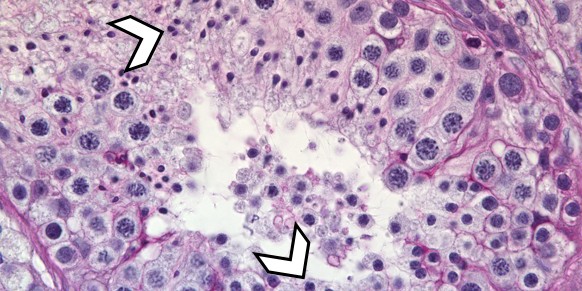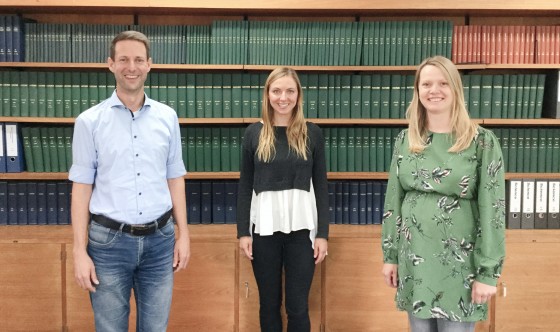
Reproductive genetics: New gene for male infertility discovered
Impairment of sperm formation: male infertility is not only a concern for those affected but is also something which the working group led by Prof. Frank Tüttelmann is researching into. The Reproductive Genetics team at the Faculty of Medicine at the University of Münster is running a multitude of projects as it attempts to get to the bottom of further causes of male infertility. Their latest finding is the identification of a new gene called M1AP, which is seen as a relevant cause of male infertility. The results of this wide-ranging research, which were arrived at under the leadership of Frank Tüttelmann, Corinna Friedrich and Margot Wyrwoll, were published recently in the American Journal of Human Genetics and represent significant progress in understanding male infertility.
In the course of their two years of research, one of the things the Reproductive Genetics team succeeded in doing was to demonstrate the existence of a specific mutation in M1AP which, it is assumed, can be traced back to a common ancestor in the European population. On the basis of DNA sequencing data from almost 2,000 infertile male patients, the team was able to trace four patients from Münster, five members of a family from Turkey, two cases from Portugal, and one each from Gießen, Nimwegen and Newcastle, in whom various mutations in the M1AP gene could be demonstrated.

There is not, as yet, any possibility of treating these patients and significantly increasing their chances of fathering a child. Even taking a testicular biopsy, from which, as a rule, mature sperm can be taken and used for artificial insemination, does not lead to the success of a pregnancy, because the probability of finding sperm in the testicles is very slight in the case of these patients. Nevertheless, the results of the Münster research team’s work on M1AP represent significant progress in understanding male infertility. Being able to provide patients with an explanation for the failure to achieve a natural pregnancy is a helpful first step for most couples and, as a result, the advice which can be given to the man and the woman as regards reproductive and genetic aspects can continue to be improved and increased. For this reason, the sequencing of the M1AP gene will in future be integrated directly into any routine genetic diagnosis.
Frank Tüttelmann is not only the leader of the research team, he is also the scientific director of the “Male Germ Cells” clinical research group. This interdisciplinary team has been conducting research into the causes of male infertility since 2007, with the aim of halving the number of men for whom no diagnosis for their infertility can be given. The project is also being funded by the German Research Foundation: just recently the Foundation approved 5.5 million euros for a second funding period to last a further three years.
Original publication:
M. J. Wyrwoll et al. (2020): Bi-allelic Mutations in M1AP Are a Frequent Cause of Meiotic Arrest and Severely Impaired Spermatogenesis Leading to Male Infertility. American Journal of Human Genetics; DOI: 10.1016/j.ajhg.2020.06.010
